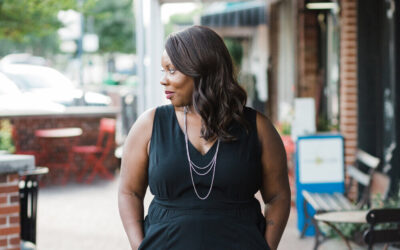Standing on the scale in the bathroom, the young woman hopes and prays for a lower number, but once it stops it’s not to her liking.

Taylor Swift – Anti-Hero (Official Music Video) https://www.youtube.com/watch?v=b1kbLwvqugk CR: Taylor Swift/YouTube
She sighs in disappointment as the voice in her head says she needs to be more disciplined and restricted.
It’s me
Hi
I’m the problem, it’s me
At teatime
Everybody agrees
I’ll stare directly at the sun but never in the mirror
It must be exhausting always rooting for the anti-hero
Anti-Hero, the leading single from Taylor Swift’s 10th album Midnight, talks about the voices in your head caused by anxiety and depression getting the best of you. In the video, she illustrates how she’s her anti-hero by having many versions of her in the video. Once Taylor opens the door, her anxiety and depression self-shows up with a bottle of wine.
Another scene in Anti-Hero is Taylor’s insecurity following her to the bathroom as she weighs herself. Stepping on the scale in hopes of a lower number, the needle stops at “Fat” with a head shake of disapproval coming from her “dark” side.
Like others, my heart broke for her seeing that. I’ve dealt with disordered eating since I was eight years old. Now, at 37, it’s hard to shake those thoughts out of my head no matter how much therapy I’m in.
Other Swifties connected with her too:
“As someone in active recovery, I cried. I know exactly how that feels and it’s hard to let go of those thoughts.”
In the bridge of “You’re On Your Own, Kid,” Taylor also mentions her issues with body image:
From sprinkler splashes to fireplace ashes
I gave my blood, sweat, and tears for this
I hosted parties and starved my body
Like I’d be saved by a perfect kiss…
In the Netflix documentary, Miss. Americana, Taylor talks about starving herself to the point of almost passing out during concerts.
“I would have defended it to anybody who said, ‘I’m concerned about you.’” She continues, “I don’t think you know you’re doing that when you’re doing it gradually. There’s always some standard of beauty that you’re not meeting. Because if you’re thin enough, then you don’t have that ass that everybody wants, but if you have enough weight on you to have an ass, then your stomach isn’t flat enough. It’s all just fucking impossible.”
Later she told Variety:
“My relationship with food was the same psychology that I applied to everything else in my life. If I was given a pat on the head, I registered that as good. If I was given a punishment, I registered that as bad.”
Luckily, Taylor worked to rewire her brain and fix her relationship with food:
“I worked hard to retrain my brain that a little extra weight means curves, shinier hair, and more energy. I think a lot of us push the boundaries of dieting but taking it too far can be dangerous. There is no quick fix. I work on accepting my body every day.” Taylor wrote in a 2019 Essay for Elle Magazine.
But not everyone saw her struggles or the message she was trying to convey. Criticism of the five-second shot was met with criticisms of fatphobia.
A Twitter user said, “Taylor Swift’s music video, where she looks down at the scale where it says “fat,” is a shitty way to describe her body image struggles. Fat people don’t need to have it reiterated yet again that it’s everyone’s worst nightmare to look like us,” to follow up with, “Having an eating disorder doesn’t excuse fat phobia.”
Yes, fatphobia needs to be addressed and destroyed. Unfortunately, it’s not simple. We cannot put disordered eating patterns and behaviors in a black-and-white category. Instead, we have to unpack the complexity of the issue.
Fatphobia, which the Boston Medical Journal describes as, “also known as anti-fat, is the implicit and explicit bias of overweight individuals that is rooted in a sense of blame and presumed moral failing.” This is a systemic issue that started way before Taylor Swift’s Anti-Hero video. Some may argue that she, with her disordered eating, may be fatphobic for wanting to be smaller. I don’t like subscribing to this idea. Saying someone with an eating disorder is fatphobic places blame on the person. That is not fair or healthy.
We all live in a society where fatphobia is present around us. Some are in the entertainment industry; others are visiting doctors for them to tell us to lose weight and make everything better.
To combat fatphobia, we need to attack the system:
- Speak out against making calorie labels bigger and moving labels to the front of foods. This behavior only makes people more anxious about eating.
- Have consequences for health professionals who turn away patients because of their BMI.
- Challenge and hold directors and writers accountable for their portrayal of fat people.
Addressing fatphobia doesn’t start by dictating how one tells their story of struggle and recovery. As a bigger person, I get it; no one wants to know that their existence is gross and undesired.
In Anti-Hero, she was not saying that in the least. To quote Rolling Stone:
“It’s not that she thinks being fat is a bad thing, but that she was made to believe that it was.”
Taylor didn’t create the system in which fatphobia exists. Like a lot of us, she is part of a cycle that tells us we must be a certain way to be successful. If we fall outside of those guidelines, we are not desirable.
And she deserves to talk about her struggles with her body like the rest of us. Yes, she is in a smaller body, but that wasn’t the point, and it doesn’t make her journey less credible or not worth telling.
Taylor cut the five-second scene from her videos on YouTube and Apple after the backlash.
And doing so does a disservice to her, her art, and most people who relate to it.
Gatekeeping recovery will not combat fatphobia.
We can’t fix the system that perpetuates these thoughts if we’re minimizing other people’s stories. Instead, let’s take down the systems that create the rules, not the victims who fall prey to them.



